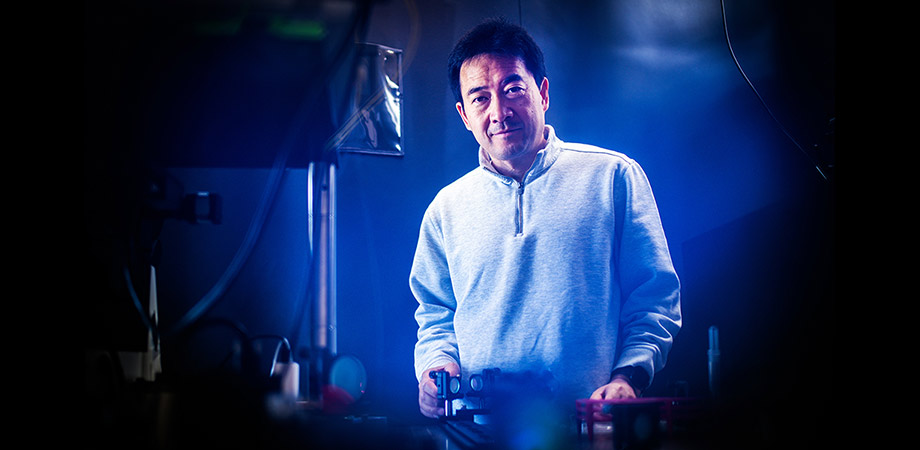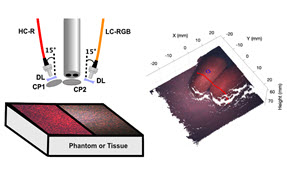Ji-Xin Cheng: The 2024 SPIE Biophotonics Technology Innovator Award

Ji-Xin Cheng is a professor of biomedical engineering, electrical and computer engineering, and materials science engineering, and the inaugural Moustakas Chair and Professor in Optoelectronics and Photonics at Boston University, a role he has held since 2017. He is also a world-renowned pioneer in bond-selective spectroscopic imaging who has shaped the field of spectrochemical imaging through his scholarship, entrepreneurship, and leadership. Over nearly three decades, Cheng has devoted his career to converting molecular spectroscopy, including Raman and infrared spectroscopy, from an in vitro tool to in situ and in vivo spectrochemical-imaging platforms. Through their interdisciplinary collaborations, Cheng and his team have made impactful discoveries in intracellular chemistry that define cancer aggressiveness as well as drug resistance. In 2018, Photothermal Spectroscopy Corp., with Cheng as its chief science advisor, announced mIRage, a novel technology for mid-infrared photothermal imaging which spans imaging of single-cell metabolism, characterization of microplastics, and 3D structural mapping of proteins in neurodegenerative diseases.
Cheng holds more than 30 patents and has multiple companies to his name including Vibronix and Pulsethera. He has established multiple conferences and workshops to promote the chemical-imaging field including the inaugural Gordon Research Conference on Chemical Imaging. Cheng’s research has been supported by the National Institutes of Health’s MIRA Award, a science and engineering grant from the Keck Foundation, and a dynamic-imaging grant from the Chan-Zuckerberg Initiative. He received the Coblentz Society’s Craver Award in 2015, and the Pittsburgh Spectroscopy Award in 2020. In 2022, Cheng was named Boston University’s Innovator of the Year for his groundbreaking innovations in biomedical engineering.
“I have known Ji-Xin since the early 2000s, when he spearheaded the development of coherent anti-Stokes Raman scattering (CARS) microscopy in Sunney Xie’s lab at Harvard University,” says MIT Professor of Mechanical Engineering and Biological Engineering Peter So. “Ji-Xin has devoted his career to developing a panel of advanced chemical imaging technologies that have enabled bond-selective imaging of living systems at unprecedented speed and spatial resolution, deeply impacting the spectrochemical imaging field through his outstanding creativity and entrepreneurship. Most preeminent scientists stay on the top of their field during their career, and this is very true for Cheng as a world-renowned pioneer of coherent Raman scattering microscopy. But Cheng has also been able to grow the chemical-imaging field by developing ‘out-of-box’ approaches: in order to break the detection sensitivity limit of coherent Raman scattering microscopy, Cheng and his team invented mid-infrared photothermal (MIP) microscopy that pushed the vibrational spectroscopic imaging sensitivity to a few-micromolar concentration. They showed, for the first time, maps of chemical bonds inside a living cell at sub-micron spatial precision, through a visible light probing the refractive index change induced by mid-infrared excitation of molecules. This technology inspired a new direction of chemical-imaging of living systems. Over the past few years, Cheng and his team substantially developed the mid-infrared photothermal imaging technology in three directions: confocal scan MIP microscopy, widefield MIPmicroscopy, and bond-selective tomography. Not only is he a groundbreaker in his field, Cheng continues to push its boundaries time after time.”
Meet the other 2024 SPIE Society Award recipients.
Read more about Ji-Xin Cheng and the SPIE Biophotonics Technology Innovator Award.



